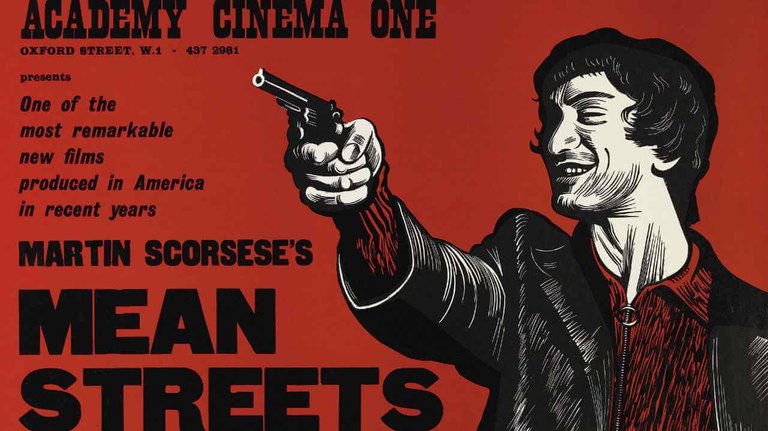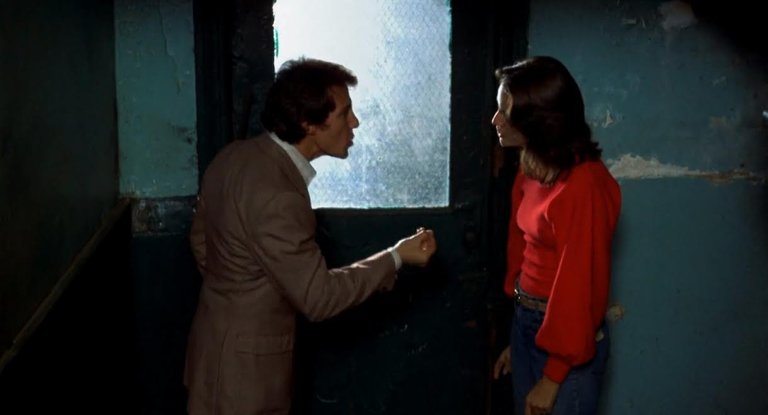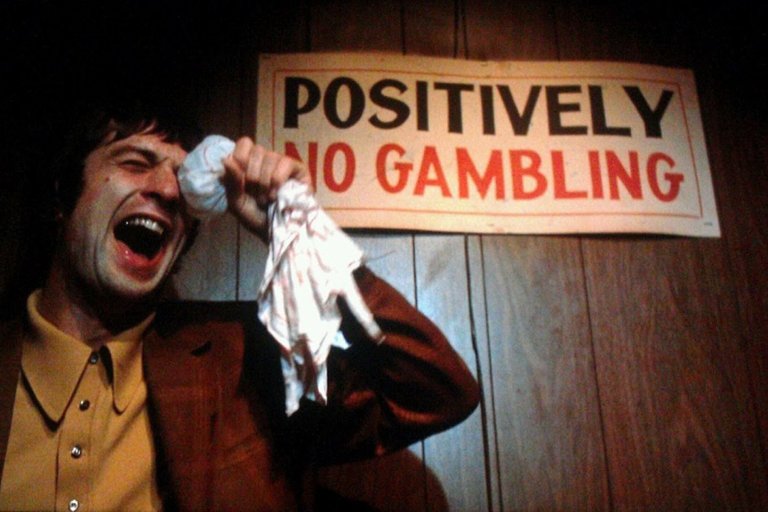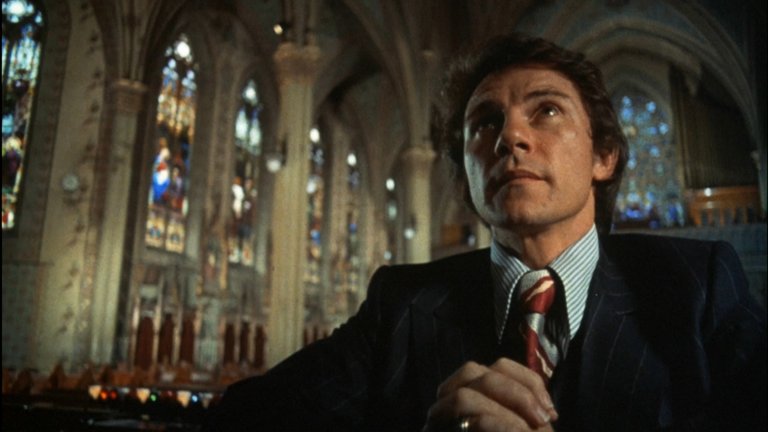
Source
Plot
The scene is in New York, Little Italy. Young Italian-American Charlie Cappa (Harvey Keitel) is followed on his numerous misadventures. He is a sensitive young man who struggles with his dislike of his environment and the ties of friendship that were forged there. He works for his uncle, a strong local boss, who hopes to, one day, offer him more challenging work than the straightforward ones he currently assigns him.
Charlie's life forces him to constantly choose between his human and religious consciences: he must find a mean to pay his "debts," but he also has moral principles and a strong Christian faith.
In addition, Charlie finds it difficult to separate himself from Johnny Youngster (Robert De Niro), a boy he grew up with who is constantly in difficulty and in debt to everyone, and from his friend Tony DeVienazo, a bar owner (David Proval). Charlie acts as the stabilizing force between them, stopping the escalation of their frequent dangerous situations. The boy also has a connection to Teresa Ronchelli, an epileptic girl who is Johnny's cousin (Amy Robinson).
Johnny continues to act erratically despite Charlie's continual concern for his friend's actions; he picks fights and insults his creditors. Any attempt to assist Charlie is complicated by his behavior, and because of him, Charlie will spend Sunday in church and Monday in hell because of his friend.

Source

Why you should watch it?
We all have different natures within ourselves, fighting a silent battle every day, and what we show to other people is only a part of our personality. We show a "mask", that, of course, represents a part of us but is only partial, and is the one that we consider to be acceptable.
One of Luigi Pirandello's novels that I remember fascinated me when I was at school was ' La Carriola', where a respected lawyer, a family man, had a kind of ritual that he performed alone in his office. He would take his dog by the hind legs and make her do the wheelbarrow, and this was his way of expressing his true nature, which he could not do openly otherwise society would look at him with the same frightened eyes that his dog looked at him every time at the end of that 'ritual'.
Mean Streets, in a certain way, talks also about this. It is a movie about the internal conflicts and differences between a man's ambitions, his surroundings, and what other people expect of him.

Source
Charlie is an unusual character; he tries to make everyone like him while being caught up in a religious spirit. He acts as a peacemaker while remaining in the underground, pleasing his uncle the boss, and aspiring to own an Italian restaurant while also wanting to help his enemies.
Charlie finds himself in the middle of things, in a kind of gray area where, in order to obtain forgiveness, it is no longer enough for him to say four prayers in a row; instead, he prefers a more severe physical punishment and continues, in stark contrast to his surroundings, to believe in higher values like love and friendship. His morals are always torn between his affection for his adored woman and his problematic friend and his goal of a job, even though it is thought to be something that does not suit him.
On the other hand, as a synthesis of the internal and external battle of a particular generational period, the entire movie may be seen as a sort of continuous duality of blacks and whites that must be navigated.
The church's ideology and the street's realism collide virtually like two equally opposing and converging moments, two unyielding moralities that, although appearing to be poles apart, come together at a point through personal preference and faith. A barrier of a profound crisis that echoes all of our protagonist's existential uncertainties, and faith that he appears to have lost and cannot find inspiration or reason for comfort in.
The second obvious division between friendship and business is portrayed as being incompatible and remote, with the former ultimately triumphing over everything over time, over memories and laughs.

Source
Mean Streets is also a personal movie.
The fact that the protagonist shares the same last name as Scorsese's mother, who also makes an appearance in one scene, indicates that the movie is at least somewhat autobiographical. Even Scorsese himself has a brief but crucial part to play.
This is also revealed by the characterization of the characters and the settings of the story, depicting a life that belonged (and belongs) to Martin Scorsese, mixing his own adolescent memories and the places where he grew up. For this reason, the narrative and directing approach used becomes appropriate, successfully depicting Scorsese's life on screen. Through several of the sequences in which Charlie is shown, Scorsese's religious attitude is also depicted in the movie. The cliché "opposites attract" is true, as two subjects as diametrically opposed as gangsters and religion blend seamlessly without feeling out of place or inappropriate.
Charlie and his friend Johnny Boy are, in the end, the two sides of the same coin.

Source

Conclusion
Mean Street is a movie with superb performances from its cast, skillful direction, and a provocative script.
I would suggest this movie to people that are fans of Scorses's work but also to those that are not but are interested in the examination of the human condition.

Rating
My personal vote is:
8.0/10

Farewell image and text separators, created by me with Canva